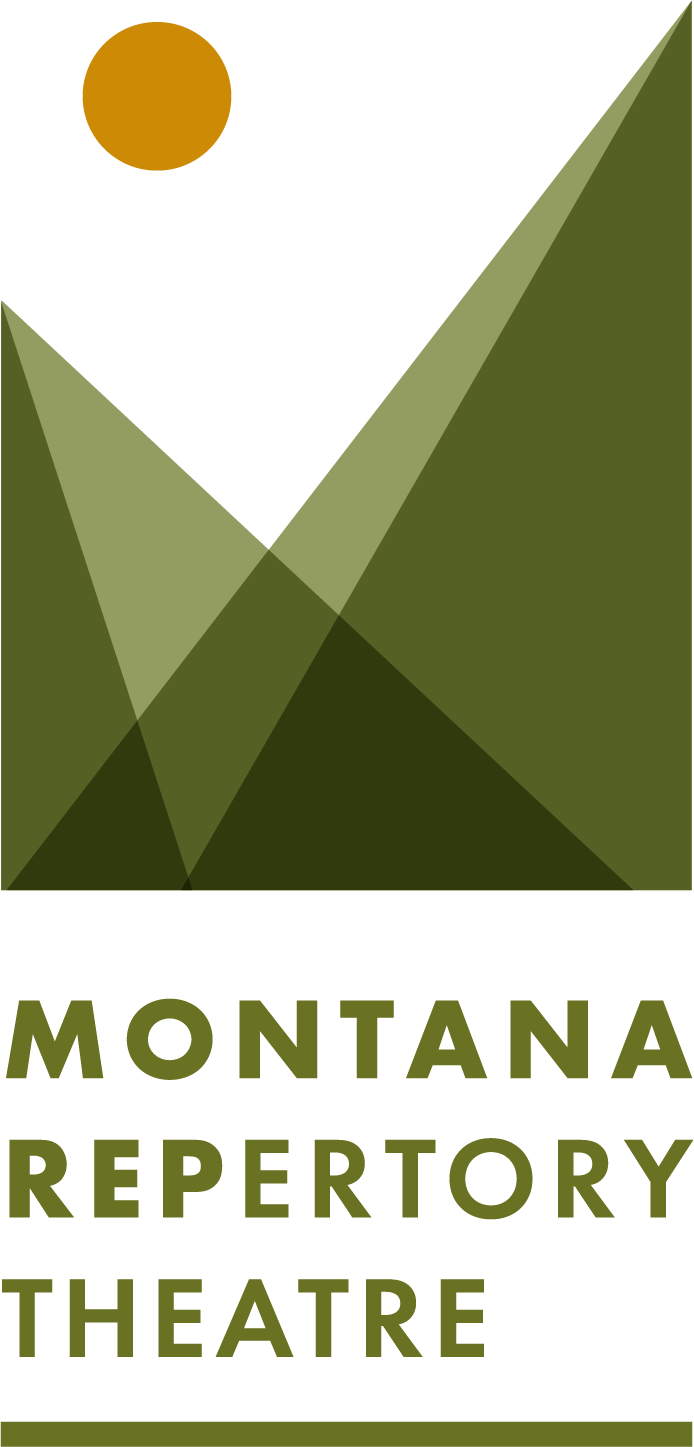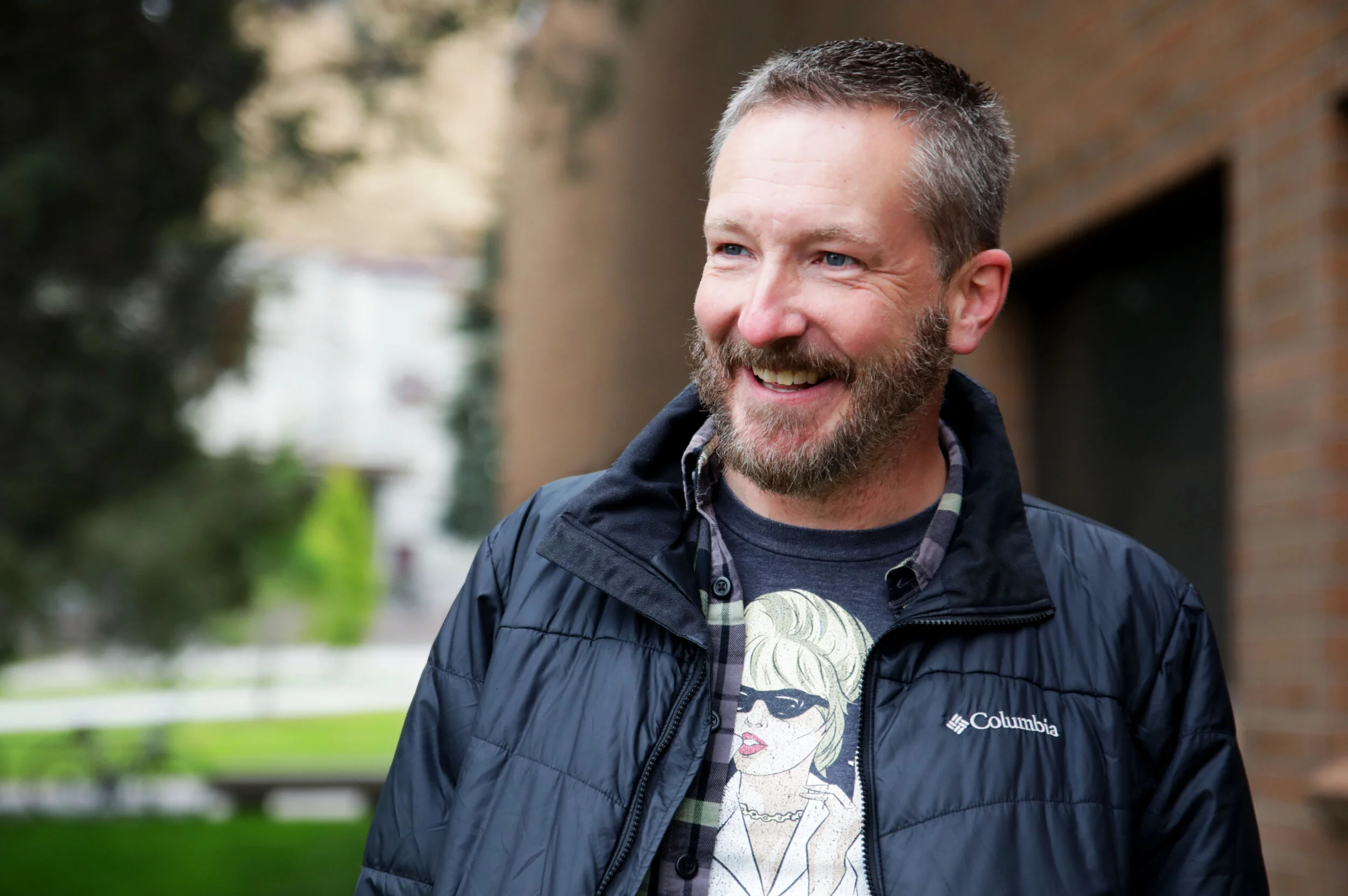University of Montana MFA Directing Candidate Chae Clearwood talks with Artistic Director Michael Legg about the history of Montana Repertory Theatre’s Plays on Tap Series.
The next installment of Plays on Tap is Lost & Found, running November 13-23 at the Missoula Art Museum, 335 N Pattee St. Get tickets now at https://www.montanarep.org/tickets.
Chae Clearwood: What was the inspiration for Plays on Tap?
Michael Legg: At my previous job, we did a lot of site-based work. Some of the first site-based work came directly from students that I taught. They did a series of plays that took place in cars. I was fascinated by them, and inspired by them. We started doing a lot more site-based plays while I was there. We would do at least three shows a year that were based in all kinds of locations around Louisville. That’s how I came to it initially, and I knew I wanted to do something like that here. I noticed that these shows were getting attended by a much younger audience. There was something very electric about being in a place outside of the theatre. To see a story that you weren't expecting to see in that place. I love that energy.
CC: How do you choose the locations for the plays? Does the location come first or after the plays are written?
ML: Sometimes I just drive around town and get a vibe and imagine what it would be like to have a play there. The location always comes first because I am asking playwrights to write for a specific location as though that location were a character in the play. I describe it to them. I send them photos of it. I send them videos of it, and try to get these playwrights – who don’t live here – to get them as familiar with the place as possible, and let the location be an inspiration to the writers. I've never gone wrong that way. That just feels like the only way to do it. I love suggestions. I love running into people in town who say, hey, have you ever thought about doing a play at the bowling alley? Actually, I have. So yeah, I just encourage folks to help me find places in Missoula that I don't know yet.
CC: How long has Plays on Tap existed?
ML: Ever since I've been here. We did the first one in the fall of 2018, which was my very first show in Missoula. I had so many people saying they wished they could get tickets to that first one, but that the show sold out too fast. So of course we had to make another one.
CC: How has it evolved over the years?
ML: It started out as always being 5 distinct experiences in an evening - 5 10-minute plays. You go and see a 10-minute play and then you move to another one so that you have time to process it and talk about it. And then you see another one. The plays were all bound to a theme but did not necessarily speak to each other.
More recently though, I have been interested in figuring out how to emulate a television writers room – to make that work in the theatre environment. In a writers room, you have 5 people sitting around and they're creating a world together and they're creating the narrative together and they're building this thing. I've recently been applying that concept to Plays on Tap. I hire a group of playwrights and tell them we're going to try to make one single play together. Bingo was the big first experiment in that model, and we're dabbling a little bit with it in Lost and Found as well. It’s hard to coordinate building a single world with playwrights who live all over the country, and I'm still trying to figure out what's the best and most effective way of doing that. But it’s a really fun and interesting process.
CC: How are plays or artists selected to be part of the event?
ML: A lot of these people are people that I've met along the path. I've become friends with the people who run the really great MFA playwriting programs. I'm always interested in giving an MFA student their first commission, and I'm deeply interested in fostering young or early career playwrights. That's where I spend a lot of my energy. Who's out there that's up and coming, whose work is interesting and work I would want to produce.
CC: What challenges and/or advantages found in the creative process of this series?
ML: You know a lot of it is adapting to the space. There are things that you want to accomplish, and then you find out that you can’t turn the lights on and off for whatever reason. I think sometimes it's explaining to the person who owns the space what it is that we're trying to do there. Gaining trust, which is easier the longer we do it and the more people hear about it. But just every space has its own little quirk that you're trying to figure out. We tend to not be able to get into the spaces until tech, and then it’s crunch time, and we have to learn everything about the space very quickly in order to make the world come together.
CC: What is one of your most memorable Plays on Tap locations?
ML: I love doing plays in cars. There is just something that is so intimate about it. To watch an audience navigate being that close to the actor and to watch an audience navigate that level of intimacy. I love to watch that. I love theatre for small audiences. In the very first car plays, we had a nightly audience of maybe 30 people. And now, we have hundreds. But those small spaces are still calling my name.

